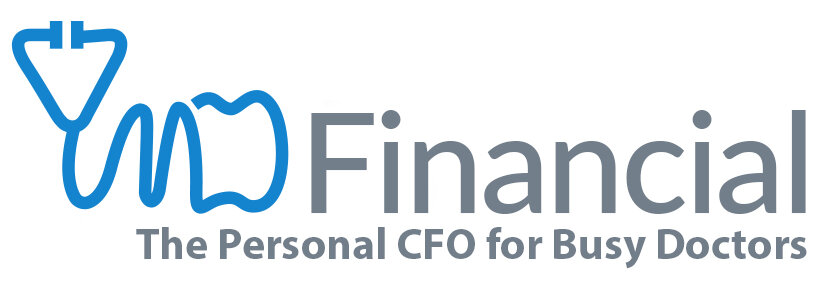This week Katherine interviews Jim Mangraviti, Jr, Esq. principal of SEAK, Inc.. SEAK is an ACCME (Accreditation Council for Continuing Medical Education) validated medical education company that was founded in 1980, and its purpose is to help doctors learn how they can supplement their income through a non-clinical career. They have courses in:
Expert Witnessing
Independent Medical Exams (IMEs)
Disability & File Review
Inventing
Life Care Planning
Writing
Consulting
And much more
Today’s conversation on non-clinical income is focused mainly on consulting.
There are so many opportunities for consulting, and many doctors actually make more doing this than in their full-time careers! Medical professionals are often grossly undervalued and underpaid. This is what compels SEAK to offer their services--to show doctors their true worth.
What does consulting, as a medical professional, actually look like? Simply put, it’s getting paid to help companies and organizations solve their problems. One example that Jim mentions is SEAK’s late employee Dr. Ken Cohn. He first established his reputation by publishing a small book (Better Communication for Better Care) regarding the hospital/staff relations. Dr. Cohn was subsequently pursued to consult and play intermediary, which greatly improved relations and staff morale at numerous hospitals across the country.
Julia Kinder, DO who originally took classes through SEAK, became a consultant for parents of children with Down Syndrome, as a part of her multifaceted career.
If you have expertise and passion in an area, there is likely an audience that is willing to pay you for your experience and advice.
The greatest thing about consulting is: it’s always a win-win-win situation. You’re happy and getting paid, the person or company that hired you is getting your essential feedback, and their business is thriving as a result of following through with your consultation.
How much can you make consulting? That all depends on a number of factors:
How much value you can deliver
How much is at stake
How much capital does your target audience have
How do you get paid: per hour, per person, project fee, etc.
How much competition is there
A doctor consulting at a pharmaceutical company, for example, could make anywhere from $50-1,500 an hour! That is a huge range and depends largely on where your situation lands in the five areas listed above. Ultimately you have to deliver value.
Another great reason to get into consulting is the cost of running your business is virtually zero. You need a computer, phone, website, and that’s about it.
What sort of training is required to do consulting work? If you’re a doctor, you could become a consultant today if you simply start problem-solving, and demand payment for it! SEAK does offer courses that cover more of the subtleties of starting your consulting career. Which brings us to our next question:
How do you get started? We recommend the following steps:
Take an introductory course in medical consulting. SEAK’s course “How to Start, Build, and Run a Successful Physician Consulting Practice” is a great example.
Decide on your consulting niche.
Get the word out. Establish your credibility and visibility in the hiring market.
Last but not least, figure out how you’re going to ask for money.
How do you build a reputation/brand? Thankfully with the boom of social media and the internet, things are much simpler than they were 20 years ago. Keep in mind that, while your reputation as an academic or practicing medical professional can be helpful in establishing credibility, consulting will require a different skill-set. A prior reputation alone won’t necessarily make you more money in consulting. Some simple steps to establish your brand:
Write. Whether it be books or blogs, publishing works will build your reputation as an expert.
Talk. Get your voice and face out into the world. You could guest star on a podcast, for example. Then the word-of-mouth recommendations begin to trickle in!
Optimize. Be very specific about your consulting work when building your webpage. The more specific your niche, the more you will stand out in a search.
What are some common consulting mistakes? There are two that are most common. Overconfidence and underconfidence. Resting on your haunches of prior experience and reputation are not going to take you very far. On the contrary, believing you are “only a doctor” and not a consultant, will in turn not instill confidence in the people that may be looking to hire you!
Other mistakes include:
Choosing a niche where your clients don’t have money
Trying to consult as an expert in too many areas.
How can SEAK specifically help? They offer many in-person and online streaming classes via SEAK.com. SEAK also provides one-on-one consulting if you’re struggling to get started.
Final words of advice. If you’ve been in your field for a while, and want a change, consider starting a side gig in consulting. Take consulting seriously, block off the time and get the proper training to be a superstar consultant. You are smart and can do this!
Listen on Apple Podcast, Google Podcast or Spotify
CONTACT US
1-888-256-6855
Remember that you can send us any questions or potential topics at: Info@MDFinancialAdvisors.com
Katherine Vessenes, JD, CFP®, is the founder and CEO of MD Financial Advisors who serve 500 doctors from Hawaii to Cape Cod. An award-winning Financial Advisor, Attorney, Certified Financial Planner®, author and speaker, she is devoted to bringing ethical advice to physicians and dentists. She can be reached at Katherine@mdfinancialadvisors.com.

![A Doctor's Side Gig Income: Consulting [Podcast]](https://images.squarespace-cdn.com/content/v1/561feb4ee4b0de0eb30d6d3c/1626456766132-XFOJXP3DZ7DNJRWS2OFU/amy-hirschi-JaoVGh5aJ3E-unsplash+%281%29.jpg)

